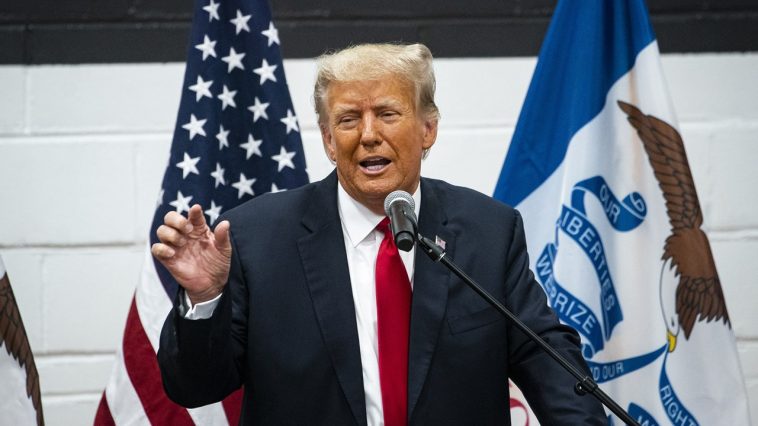LISTEN HERE:
The trial of former President Donald Trump, accused of obstructing the 2020 election, is set to commence on March 4, 2024. Trump’s legal team is of the belief that a pivotal presidential immunity battle will ensue in the U.S. Supreme Court.
It is worth noting that Trump has already been denied immunity from a civil case that aimed to hold him accountable for the attack on the U.S. Capitol on January 6, 2021, a departure from the usual presidential immunity from lawsuits, as per US News.
Trump’s lack of progress in appealing the aforementioned ruling over the past year serves as a potential strategy to postpone his criminal trial in Washington, related to his alleged attempts to manipulate the outcome of the 2020 election.
His legal team is expected to assert that he deserves comprehensive immunity from prosecution for actions undertaken during his White House tenure, even though they haven’t explicitly requested it in the criminal case.
Throughout history, the Supreme Court has dealt with issues surrounding civil lawsuits and criminal investigations involving presidents and executive branch officials. However, no current or former president has faced federal indictment before.
In 1982, in Nixon v. Fitzgerald, the justices determined that a president enjoyed ‘absolute immunity’ against civil damages claims related to their official actions. In 1997, the court grappled with handling allegations linked to private conduct, concluding that former President Bill Clinton could face a civil lawsuit concerning events predating his time in office.
In 2020, the Supreme Court ruled that Trump did not have immunity as president against a grand jury subpoena for his tax records, associated with a criminal investigation by New York state prosecutors. Consequently, charges were subsequently filed against Trump for falsifying business records this year.
Traditionally, the Justice Department adheres to a policy of not prosecuting a sitting president. However, President Joe Biden’s administration has evidently adopted a distinct approach as the 2024 election approaches.
Trump has pleaded not guilty to federal charges, alleging that he schemed to unlawfully influence the outcome of the 2020 presidential election. Comparisons between Nixon and Trump have long been drawn by historians, primarily regarding impeachment but more recently regarding their efforts to invoke executive immunity.
According to legal experts, it is not impossible for six conservative justices, three of whom were appointed by Trump himself, to overturn the precedent set during the Nixon era and promote a strict constructionist interpretation of the Constitution, asserting that the judiciary has no authority over Trump’s actions as president, as per US News.
Legal experts believe that such a scenario is plausible, especially since Trump’s attorneys seem poised to appeal various procedural rulings stemming from his criminal cases, which could serve as the foundation for such an opinion.
Barbara Perry, a professor of presidential studies at the University of Virginia’s Miller Center, who co-directs the Presidential Oral History Program, states that ‘a case like this on this very issue could come to the court in the Trump cases.’ Perry suggests that numerous substantial questions will arise, evident in the Washington case’s trial date.
Trump’s defense team is already claiming insufficient time to prepare, and if he were to be convicted, it would be the focal point of their appeal. Cases involving Trump’s legal procedures, both at the state and federal levels, could potentially reach the Supreme Court due to a multitude of factors. Above all, the central concern is the separation of powers, emphasizes Perry.


